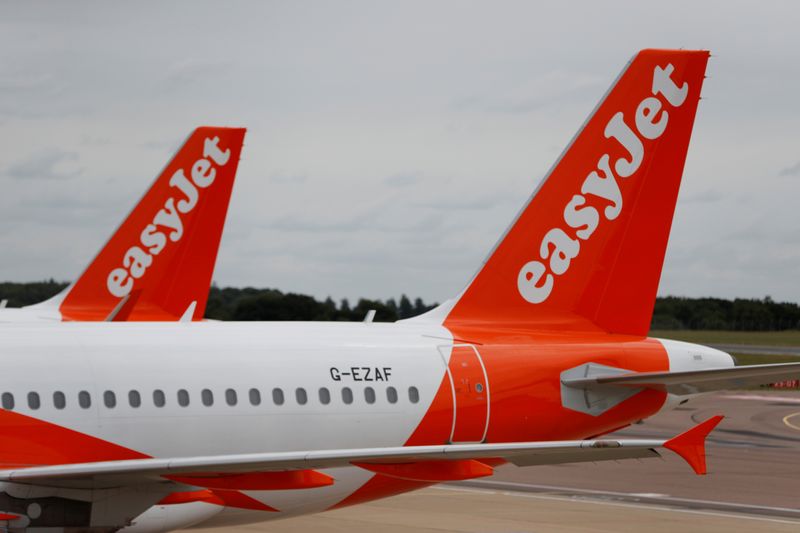LONDON (Reuters) - British airline easyJet (LON:EZJ), whose finances have come under severe pressure during the COVID-19 pandemic, has agreed with Airbus to defer the delivery of aircraft, it said on Tuesday.
European travel has been at very low levels for more than nine months, forcing easyJet to take on more debt, tap shareholders for cash and sell dozens of aircraft to boost its finances to survive until flying recovers. Last month it reported a 1.27 billion pound ($1.7 billion) loss.
The airline said the delivery of 22 aircraft will be deferred from 2022-2024 to 2027-2028.
In addition 15 delivery dates within the period 2022 to 2024 will move to more closely match forecast seasonal requirements.
EasyJet said that under the terms of its 2013 agreement with Airbus the future aggregate cash price of the aircraft subject to deferrals will increase.
The airline also had the option until Dec. 31 2020 not to take up to seven aircraft scheduled for delivery between 2022 and 2026.
It has now agreed with Airbus to reallocate the aircraft to which this option applies, to seven planes due for delivery in 2025 to 2026, with the deadline to exercise this option amended to December 2021.
The changes will result in easyJet taking no deliveries in 2021, eight in 2022, seven in 2023 and 18 in 2024.
EasyJet has also retained options to increase its deliveries in 2023 to 30 aircraft.
"In this period of uncertainty, this flexibility is even more valuable, as it will enable us to quickly flex our fleet size in response to customer demand," CEO Johan Lundgren said.
Shares in easyJet, down 47% this year, closed Monday at 757.2 pence, valuing the business at 3.47 billion pounds.

($1 = 0.7453 pounds)